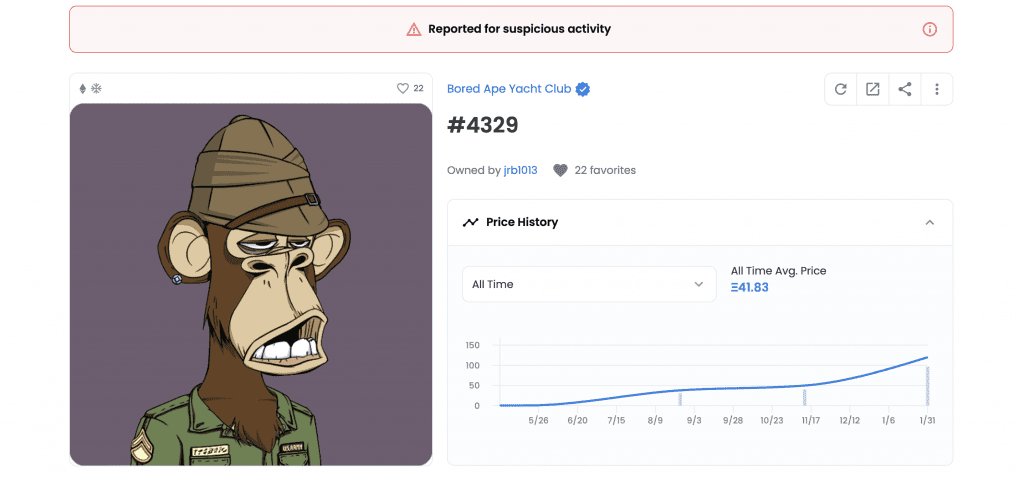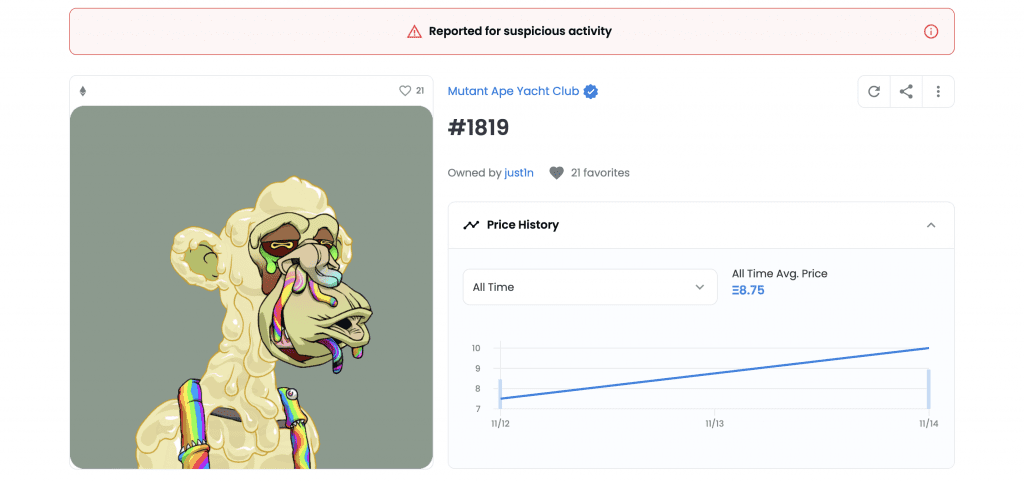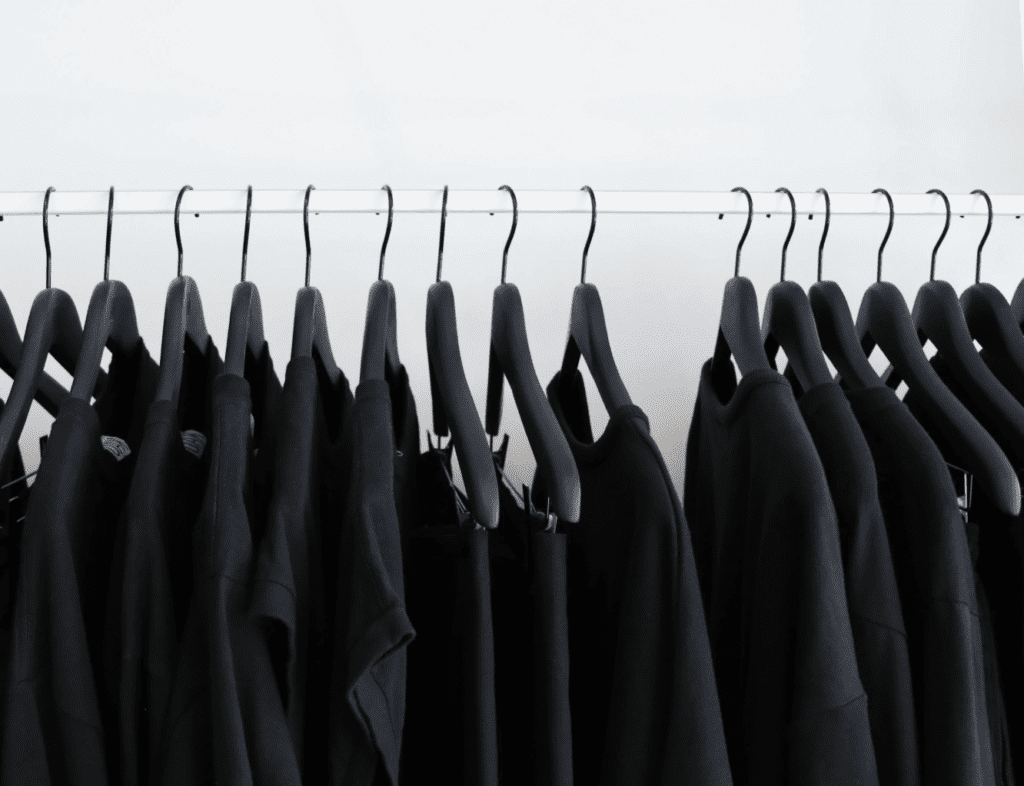OpenSea has been named in another negligence lawsuit, with a non-fungible token (“NFT”)-owning plaintiff claiming that the marketplace and fellow NFT platform LooksRare have both failed to implement “common sense and reasonable security measures” to protect users from fraud and from the sale of stolen NFTs. Not the only defendants named in the newly-filed suit, plaintiff Robert Armijo is also suing Yuga Labs, LLC d/b/a Bored Ape Yacht Club (“BAYC”), arguing that all three of the defendants “have taken advantage of the unregulated digital asset market and have profited enormously from the sale of stolen NFTs, including the NFTs that were stolen from [him].”
According to the complaint that he filed in a federal court in Nevada on February 28, Armijo alleges that three of his NFTs were stolen in a phishing attack in February and that despite his attempts to get the defendants to block subsequent sale of the stolen NFTs, they “failed to provide adequate and reasonable customer service” to aid him or protect unsuspecting buyers. The three NFTs at the heart of the lawsuit are BAYC Bored Ape #4329 NFT, which Armijo acquired in November for the equivalent of $221,337, and two NFTs from Yuga’s collection of Mutant Ape Yacht Club (“MAYC”): MAYC #1819 and MAYC #7713, which he purchased for a total of $82,356.30.
Fast forward to February 1, 2022, and Armijo states that he wanted to “trade one of his Mutant Ape NFTs for two or three NFTs from another popular NFT collection known as Cool Cats.” Thinking that he had received a legitimate link to complete a trade transaction via third-party trading website NFT Trader, Armijo alleges that he quickly learned that the link that the other party – a user with the handle @Nodelee – had sent “was actually connected to a fake website made to look like the real NFT Trader site.” When he “clicked the link to approve what he thought was a legitimate trade,” Armijo claims that he was “unwittingly” granted @Nodelee access to his digital wallet, “which allowed @Nodelee to steal his NFTs.”
Swiftly realizing that he was the victim of a “phishing attack,” and suspecting that “the thief would list the stolen NFTs on OpenSea to try and sell them as quickly as possible,” Armijo contends in the lawsuit that he contacted OpenSea but did not receive a timely response. “In desperation,” Armijo says he “turned to BAYC for help,” only to have a BAYC employee explain that “the only thing BAYC could do was reach out to OpenSea to try and expedite [his] help tickets.”

“While Mr. Armijo was frantically trying to find anyone who could help him, he watched helplessly as his Bored Ape NFT #4329 was listed for sale on OpenSea for 120 Ether – a price well below its value at the time – and was then purchased by a new user … approximately two hours after the theft occurred,” the complaint states. Meanwhile, his two Mutant Ape NFTs were listed and sold on LooksRare. Mutant Ape #1819 sold on February 4, 2022, and Mutant Ape #7713 initially sold on February 14, 2022 and was resold two days later.
Armijo claims that his “ordeal is not a unique experience for owners of valuable NFTs, especially those who own BAYC NFTs,” and while the defendants are “aware of the heightened risk for NFT consumers,” they have “utterly failed to protect consumers or do anything to disincentivize or stop the thefts.” Prioritizing “explosive growth and enormous profits” over “even basic safety measures,” Armijo asserts that “OpenSea and LooksRare have an incentive to allow NFTs to be bought and sold as many times as possible because they profit from every transaction that occurs in their marketplaces.”
At the same time, he argues in the lawsuit that BAYC is “incentivized to allow as many sales of its NFT creations as possible because it profits from every sale no matter where it occurs.” BAYC receives a 2.5 percent royalty fee for every secondary sale of BAYC NFTs, according to Armijo, who claims that as of January 2022, BAYC had a sales turnover of over $1 billion, “with the founders of BAYC collecting more than $60 million in secondary sales income.” As such, the company has allegedly failed to “monitor its proprietary and exclusive ape community by denying entry to individuals whose access is predicated on a stolen BAYC NFT.”
“Rather than try to protect NFT consumers,” Armijo alleges that the defendants have “decided to profit from their misfortune” and have run afoul of the law in doing so. Specifically, he claims that OpenSea and LooksRare “disregarded the safety of all consumers who participate in the NFT market by: negligently failing to employ reasonable security measures to ensure their NFT marketplaces are free from stolen NFTs; failing to provide adequate and reasonable customer service to aid victims of NFT theft; failing to monitor their platforms to timely detect instances of theft; failing to provide adequate remedies to later, unsuspecting purchasers of stolen NFTs; and failing to adequately assist law enforcement officials in attempts to retrieve stolen NFTs.”
He pin-points OpenSea’s alleged “failure to implement proactive theft detection methods … to determine whether the NFTs uploaded to its platform have been stolen,” and LooksRare’s refusal to “freeze or remove any NFTs listed on its marketplace regardless of whether the NFT has been stolen” as especially problematic. As for BAYC, Armijo claims that the company has “disregarded its duty to monitor its community of legitimate owners of BAYC NFTs by failing to restrict the access of NFTs that are known to be stolen, failing to provide adequate and reasonable customer service to aid victims whose BAYC NFTs were stolen, and failing to adequately assist law enforcement officials in attempts to retrieve stolen NFTs.”

Ultimately, Armijo states that in the process of “enticing new and inexperienced consumers into the world of cryptocurrencies and NFTs,” each of the defendants has “failed to provide even a semblance of effective customer service to make consumers whole again when things foreseeably go wrong,” despite having “the resources necessary to deter or remedy the theft.” In fact, he claims that their “wholehearted embrace of the ethos of decentralization, which forces consumers to bear the daunting responsibility of providing their own security, has created a situation where thieves are emboldened to strike without fear of punishment.”
And even though blockchains and the technology associated with them “may be decentralized in theory,” Armijo argues that each of the defendants is a centralized entity in that does “not share governance with their communities or the wider NFT consumer base.” In reality, the defendants “designed their platforms, chose the security measures they deemed necessary, and determined the level of customer service they wanted to offer.”
With the foregoing in mind and given the “duty” that the defendants as “centralized intermediaries” owe to NFT consumers “to monitor their platforms to prohibit the sale of stolen goods and implement robust security measures to protect vulnerable consumers,” Armijo asserts that the defendants are on the hook for negligence, negligent hiring, and negligent training and supervision.
In terms of the damages that he has allegedly suffered as a result of the defendants’ breaches, Armijo claims that he has been “deprived not only of the significant monetary value of the NFTs he owned, but also [as been] strip of his membership in the BAYC community and the commercialization rights he possessed in his underlying Bored Ape and Mutant Ape images,” including the ability to earn future profits from his BAYC NFTs, the lawsuit states. (“BAYC NFT owners possess full commercial rights to their digital images and the underlying ape characters,” per Armijo. “Owners can, for example, sell merchandise depicting their ape.”)
Armijo is seeking general and compensatory damages against the defendants “in an amount to be determined at trial in, but in no event less than $6 million,” as well as “exemplary and punitive damages against all the defendants … in an amount to be determined at trial.”
The suit comes just weeks after OpenSea was named in an unrelated lawsuit on the heels of a phishing attack that reportedly cost users of the marketplace millions of dollars in stolen NFTs. In the $1 million-plus lawsuit, Timothy McKimmy claims that his BAYC NFT – Bored Ape #3475 – was stolen when OpenSea was hacked this month, and then listed on the NFT marketplace and sold to another party for 0.01 ETH ($2.66), “a literal fraction” of what it was worth.
Reps for OpenSea, LooksRare, and Yuga Labs were not immediately available for comment.
The case is Robert Armijo v. Ozone Networks, et al, 3:22-cv-00112 (D.Nev.)











